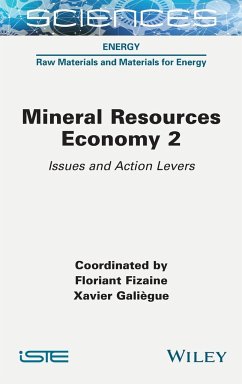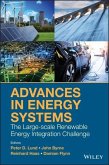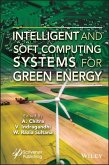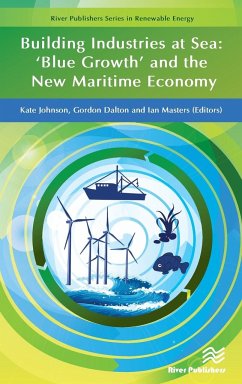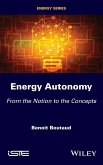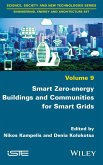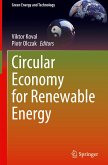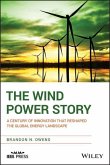Mineral Resource Economy 2
Issues and Action Levers
Herausgegeben:Fizaine, Floriant; Galiegue, Xavier
Mineral Resource Economy 2
Issues and Action Levers
Herausgegeben:Fizaine, Floriant; Galiegue, Xavier
- Gebundenes Buch
- Merkliste
- Auf die Merkliste
- Bewerten Bewerten
- Teilen
- Produkt teilen
- Produkterinnerung
- Produkterinnerung
The challenges associated with the environmental impact of renewable energies are formidable and multiple. The exploitation of diffuse forms of energy will require us to reshape our lifestyles and infrastructures. Reducing their environmental impact is imperative and requires the mobilization of all available levers of action.
Beyond the analysis of these challenges, this book presents an overview of the levers of action that should allow us to meet them, by crossing the fields of the human sciences, geosciences and engineering. The levers of action examined are both technical (through the…mehr
Andere Kunden interessierten sich auch für
![Advances in Energy Systems Advances in Energy Systems]() Advances in Energy Systems213,99 €
Advances in Energy Systems213,99 €![Intelligent and Soft Computing Systems for Green Energy Intelligent and Soft Computing Systems for Green Energy]() Intelligent and Soft Computing Systems for Green Energy192,99 €
Intelligent and Soft Computing Systems for Green Energy192,99 €![Building Industries at Sea - �blue Growth� And the New Maritime Economy Building Industries at Sea - �blue Growth� And the New Maritime Economy]() Building Industries at Sea - �blue Growth� And the New Maritime Economy86,99 €
Building Industries at Sea - �blue Growth� And the New Maritime Economy86,99 €![Energy Autonomy Energy Autonomy]() Benoit BoutaudEnergy Autonomy164,99 €
Benoit BoutaudEnergy Autonomy164,99 €![Smart Zero-Energy Buildings and Communities for Smart Grids Smart Zero-Energy Buildings and Communities for Smart Grids]() Smart Zero-Energy Buildings and Communities for Smart Grids177,99 €
Smart Zero-Energy Buildings and Communities for Smart Grids177,99 €![Circular Economy for Renewable Energy Circular Economy for Renewable Energy]() Circular Economy for Renewable Energy112,99 €
Circular Economy for Renewable Energy112,99 €![The Wind Power Story The Wind Power Story]() Brandon N. OwensThe Wind Power Story76,99 €
Brandon N. OwensThe Wind Power Story76,99 €-
-
-
The challenges associated with the environmental impact of renewable energies are formidable and multiple. The exploitation of diffuse forms of energy will require us to reshape our lifestyles and infrastructures. Reducing their environmental impact is imperative and requires the mobilization of all available levers of action.
Beyond the analysis of these challenges, this book presents an overview of the levers of action that should allow us to meet them, by crossing the fields of the human sciences, geosciences and engineering. The levers of action examined are both technical (through the substitution or use of low technology) and economic and social (through the development of recycling or decoupling). The book also addresses the question of their effectiveness and their overall impact.
Hinweis: Dieser Artikel kann nur an eine deutsche Lieferadresse ausgeliefert werden.
Beyond the analysis of these challenges, this book presents an overview of the levers of action that should allow us to meet them, by crossing the fields of the human sciences, geosciences and engineering. The levers of action examined are both technical (through the substitution or use of low technology) and economic and social (through the development of recycling or decoupling). The book also addresses the question of their effectiveness and their overall impact.
Hinweis: Dieser Artikel kann nur an eine deutsche Lieferadresse ausgeliefert werden.
Produktdetails
- Produktdetails
- Verlag: Wiley & Sons / Wiley-ISTE
- Artikelnr. des Verlages: 1W789450250
- 1. Auflage
- Seitenzahl: 256
- Erscheinungstermin: 26. Januar 2022
- Englisch
- Abmessung: 240mm x 161mm x 18mm
- Gewicht: 502g
- ISBN-13: 9781789450255
- ISBN-10: 178945025X
- Artikelnr.: 62893019
- Herstellerkennzeichnung
- Libri GmbH
- Europaallee 1
- 36244 Bad Hersfeld
- gpsr@libri.de
- Verlag: Wiley & Sons / Wiley-ISTE
- Artikelnr. des Verlages: 1W789450250
- 1. Auflage
- Seitenzahl: 256
- Erscheinungstermin: 26. Januar 2022
- Englisch
- Abmessung: 240mm x 161mm x 18mm
- Gewicht: 502g
- ISBN-13: 9781789450255
- ISBN-10: 178945025X
- Artikelnr.: 62893019
- Herstellerkennzeichnung
- Libri GmbH
- Europaallee 1
- 36244 Bad Hersfeld
- gpsr@libri.de
Florian Fizaine is Assistant Professor in economics at the University Savoie Mont Blanc and Visiting Professor at the IFP School and Mines ParisTech in France. Xavier Galiegue is Associate Professor in economics at the University of Orléans and a member of the Orléans Laboratory of Economics (LEO) in France.
Introduction xi
Florian FIZAINE and Xavier GALIÈGUE
Part 1. Stakes 1
Chapter 1. Toward a New Geopolitics of Raw Materials in the Energy Transition 3
Emmanuel HACHE, Gondia SOKHNA SECK, Charlène BARNET, Samuel CARCANAGUE and Fernanda GUEDES
1.1. Introduction 3
1.2. Measuring the criticality of raw materials and geopolitical risk 5
1.2.1. Criticality, strategic materials and risks 5
1.2.2. The absence of a homogeneous theoretical framework 6
1.2.3. Criticality matrices 7
1.3. The geopolitics and geo-economics of raw materials in the energy transition 11
1.3.1. From measuring pressures on reserves to taking geopolitics into account in measuring criticality 12
1.3.2. Fear of cartelization or monopoly in commodity markets 13
1.4. How can we manage strategic materials supply risk? 24
1.4.1. The role of public policies 25
1.4.2. The issue of strategic stocks 27
1.4.3. Foreign investment through national companies 28
1.4.4. The logic of the Chinese barter 30
1.5. Conclusion: toward a new resource nationalism? 30
1.6. References 32
Chapter 2. Legal Issues Regarding the Sustainable Management of Territorial and Extraterritorial Mineral Resources 39
Stephanie REICHE-DE VIGAN
2.1. National law regarding territorial mineral resources: the decisive issue of ownership 42
2.1.1. Ownership over mineral resources at the core of mineral law 42
2.1.2. A form of mineral ownership that may limit the government's capacity to regulate the extractive sector for environmental reasons 47
2.2. International law regarding territorial mineral resources: the central role of state sovereignty 52
2.2.1. The principle of permanent sovereignty over natural resources for the benefit of international trade 52
2.2.2. A principle challenged by indigenous peoples' rights to lands, territories and resources 55
2.3. International law regarding extraterritorial mineral resources: exploitation "for the benefit of mankind as a whole" 56
2.3.1. The legal status of the seabed and the subsoil, determined by states' interests in the exploitation of mineral resources 57
2.3.2. The legal framework for the exploitation of Antarctic mineral resources, determined by ecological considerations 63
2.4. For a sustainable management of mineral resources 65
2.5. References 68
Chapter 3. Mining and Societies 71
Michel DESHAIES
3.1. Introduction 71
3.2. Mines as a factor of settlement and landscape transformation 72
3.2.1. Mining and the population 72
3.2.2. Mines, landscapes and the environment in pre-industrial times 74
3.3. Mining in the Industrial Age 76
3.3.1. The transformations of the industrial energy system 76
3.3.2. Birth and development of coalfields 78
3.3.3. Conquest and development of new metal deposits 79
3.4. Contemporary mining transformations and challenges 81
3.4.1. Geographic trends in mining 81
3.4.2. Decline and changes in former mining regions 82
3.4.3. Extraction boom and risks in new mining regions 85
3.4.4. The limits of "responsible" mining 92
3.5. Conclusion 95
3.6. References 96
Part 2. Action Levers 101
Chapter 4. Maintaining or Even Developing the Mining of Mineral Resources in Europe: The Case of Wallonia (Belgium) 103
Johan YANS
4.1. Introduction 103
4.2. Geological resources in Wallonia 104
4.2.1. Extraction of mineral materials other than metals 104
4.2.2. Metal extraction: a problem on s
Florian FIZAINE and Xavier GALIÈGUE
Part 1. Stakes 1
Chapter 1. Toward a New Geopolitics of Raw Materials in the Energy Transition 3
Emmanuel HACHE, Gondia SOKHNA SECK, Charlène BARNET, Samuel CARCANAGUE and Fernanda GUEDES
1.1. Introduction 3
1.2. Measuring the criticality of raw materials and geopolitical risk 5
1.2.1. Criticality, strategic materials and risks 5
1.2.2. The absence of a homogeneous theoretical framework 6
1.2.3. Criticality matrices 7
1.3. The geopolitics and geo-economics of raw materials in the energy transition 11
1.3.1. From measuring pressures on reserves to taking geopolitics into account in measuring criticality 12
1.3.2. Fear of cartelization or monopoly in commodity markets 13
1.4. How can we manage strategic materials supply risk? 24
1.4.1. The role of public policies 25
1.4.2. The issue of strategic stocks 27
1.4.3. Foreign investment through national companies 28
1.4.4. The logic of the Chinese barter 30
1.5. Conclusion: toward a new resource nationalism? 30
1.6. References 32
Chapter 2. Legal Issues Regarding the Sustainable Management of Territorial and Extraterritorial Mineral Resources 39
Stephanie REICHE-DE VIGAN
2.1. National law regarding territorial mineral resources: the decisive issue of ownership 42
2.1.1. Ownership over mineral resources at the core of mineral law 42
2.1.2. A form of mineral ownership that may limit the government's capacity to regulate the extractive sector for environmental reasons 47
2.2. International law regarding territorial mineral resources: the central role of state sovereignty 52
2.2.1. The principle of permanent sovereignty over natural resources for the benefit of international trade 52
2.2.2. A principle challenged by indigenous peoples' rights to lands, territories and resources 55
2.3. International law regarding extraterritorial mineral resources: exploitation "for the benefit of mankind as a whole" 56
2.3.1. The legal status of the seabed and the subsoil, determined by states' interests in the exploitation of mineral resources 57
2.3.2. The legal framework for the exploitation of Antarctic mineral resources, determined by ecological considerations 63
2.4. For a sustainable management of mineral resources 65
2.5. References 68
Chapter 3. Mining and Societies 71
Michel DESHAIES
3.1. Introduction 71
3.2. Mines as a factor of settlement and landscape transformation 72
3.2.1. Mining and the population 72
3.2.2. Mines, landscapes and the environment in pre-industrial times 74
3.3. Mining in the Industrial Age 76
3.3.1. The transformations of the industrial energy system 76
3.3.2. Birth and development of coalfields 78
3.3.3. Conquest and development of new metal deposits 79
3.4. Contemporary mining transformations and challenges 81
3.4.1. Geographic trends in mining 81
3.4.2. Decline and changes in former mining regions 82
3.4.3. Extraction boom and risks in new mining regions 85
3.4.4. The limits of "responsible" mining 92
3.5. Conclusion 95
3.6. References 96
Part 2. Action Levers 101
Chapter 4. Maintaining or Even Developing the Mining of Mineral Resources in Europe: The Case of Wallonia (Belgium) 103
Johan YANS
4.1. Introduction 103
4.2. Geological resources in Wallonia 104
4.2.1. Extraction of mineral materials other than metals 104
4.2.2. Metal extraction: a problem on s
Introduction xi
Florian FIZAINE and Xavier GALIÈGUE
Part 1. Stakes 1
Chapter 1. Toward a New Geopolitics of Raw Materials in the Energy Transition 3
Emmanuel HACHE, Gondia SOKHNA SECK, Charlène BARNET, Samuel CARCANAGUE and Fernanda GUEDES
1.1. Introduction 3
1.2. Measuring the criticality of raw materials and geopolitical risk 5
1.2.1. Criticality, strategic materials and risks 5
1.2.2. The absence of a homogeneous theoretical framework 6
1.2.3. Criticality matrices 7
1.3. The geopolitics and geo-economics of raw materials in the energy transition 11
1.3.1. From measuring pressures on reserves to taking geopolitics into account in measuring criticality 12
1.3.2. Fear of cartelization or monopoly in commodity markets 13
1.4. How can we manage strategic materials supply risk? 24
1.4.1. The role of public policies 25
1.4.2. The issue of strategic stocks 27
1.4.3. Foreign investment through national companies 28
1.4.4. The logic of the Chinese barter 30
1.5. Conclusion: toward a new resource nationalism? 30
1.6. References 32
Chapter 2. Legal Issues Regarding the Sustainable Management of Territorial and Extraterritorial Mineral Resources 39
Stephanie REICHE-DE VIGAN
2.1. National law regarding territorial mineral resources: the decisive issue of ownership 42
2.1.1. Ownership over mineral resources at the core of mineral law 42
2.1.2. A form of mineral ownership that may limit the government's capacity to regulate the extractive sector for environmental reasons 47
2.2. International law regarding territorial mineral resources: the central role of state sovereignty 52
2.2.1. The principle of permanent sovereignty over natural resources for the benefit of international trade 52
2.2.2. A principle challenged by indigenous peoples' rights to lands, territories and resources 55
2.3. International law regarding extraterritorial mineral resources: exploitation "for the benefit of mankind as a whole" 56
2.3.1. The legal status of the seabed and the subsoil, determined by states' interests in the exploitation of mineral resources 57
2.3.2. The legal framework for the exploitation of Antarctic mineral resources, determined by ecological considerations 63
2.4. For a sustainable management of mineral resources 65
2.5. References 68
Chapter 3. Mining and Societies 71
Michel DESHAIES
3.1. Introduction 71
3.2. Mines as a factor of settlement and landscape transformation 72
3.2.1. Mining and the population 72
3.2.2. Mines, landscapes and the environment in pre-industrial times 74
3.3. Mining in the Industrial Age 76
3.3.1. The transformations of the industrial energy system 76
3.3.2. Birth and development of coalfields 78
3.3.3. Conquest and development of new metal deposits 79
3.4. Contemporary mining transformations and challenges 81
3.4.1. Geographic trends in mining 81
3.4.2. Decline and changes in former mining regions 82
3.4.3. Extraction boom and risks in new mining regions 85
3.4.4. The limits of "responsible" mining 92
3.5. Conclusion 95
3.6. References 96
Part 2. Action Levers 101
Chapter 4. Maintaining or Even Developing the Mining of Mineral Resources in Europe: The Case of Wallonia (Belgium) 103
Johan YANS
4.1. Introduction 103
4.2. Geological resources in Wallonia 104
4.2.1. Extraction of mineral materials other than metals 104
4.2.2. Metal extraction: a problem on s
Florian FIZAINE and Xavier GALIÈGUE
Part 1. Stakes 1
Chapter 1. Toward a New Geopolitics of Raw Materials in the Energy Transition 3
Emmanuel HACHE, Gondia SOKHNA SECK, Charlène BARNET, Samuel CARCANAGUE and Fernanda GUEDES
1.1. Introduction 3
1.2. Measuring the criticality of raw materials and geopolitical risk 5
1.2.1. Criticality, strategic materials and risks 5
1.2.2. The absence of a homogeneous theoretical framework 6
1.2.3. Criticality matrices 7
1.3. The geopolitics and geo-economics of raw materials in the energy transition 11
1.3.1. From measuring pressures on reserves to taking geopolitics into account in measuring criticality 12
1.3.2. Fear of cartelization or monopoly in commodity markets 13
1.4. How can we manage strategic materials supply risk? 24
1.4.1. The role of public policies 25
1.4.2. The issue of strategic stocks 27
1.4.3. Foreign investment through national companies 28
1.4.4. The logic of the Chinese barter 30
1.5. Conclusion: toward a new resource nationalism? 30
1.6. References 32
Chapter 2. Legal Issues Regarding the Sustainable Management of Territorial and Extraterritorial Mineral Resources 39
Stephanie REICHE-DE VIGAN
2.1. National law regarding territorial mineral resources: the decisive issue of ownership 42
2.1.1. Ownership over mineral resources at the core of mineral law 42
2.1.2. A form of mineral ownership that may limit the government's capacity to regulate the extractive sector for environmental reasons 47
2.2. International law regarding territorial mineral resources: the central role of state sovereignty 52
2.2.1. The principle of permanent sovereignty over natural resources for the benefit of international trade 52
2.2.2. A principle challenged by indigenous peoples' rights to lands, territories and resources 55
2.3. International law regarding extraterritorial mineral resources: exploitation "for the benefit of mankind as a whole" 56
2.3.1. The legal status of the seabed and the subsoil, determined by states' interests in the exploitation of mineral resources 57
2.3.2. The legal framework for the exploitation of Antarctic mineral resources, determined by ecological considerations 63
2.4. For a sustainable management of mineral resources 65
2.5. References 68
Chapter 3. Mining and Societies 71
Michel DESHAIES
3.1. Introduction 71
3.2. Mines as a factor of settlement and landscape transformation 72
3.2.1. Mining and the population 72
3.2.2. Mines, landscapes and the environment in pre-industrial times 74
3.3. Mining in the Industrial Age 76
3.3.1. The transformations of the industrial energy system 76
3.3.2. Birth and development of coalfields 78
3.3.3. Conquest and development of new metal deposits 79
3.4. Contemporary mining transformations and challenges 81
3.4.1. Geographic trends in mining 81
3.4.2. Decline and changes in former mining regions 82
3.4.3. Extraction boom and risks in new mining regions 85
3.4.4. The limits of "responsible" mining 92
3.5. Conclusion 95
3.6. References 96
Part 2. Action Levers 101
Chapter 4. Maintaining or Even Developing the Mining of Mineral Resources in Europe: The Case of Wallonia (Belgium) 103
Johan YANS
4.1. Introduction 103
4.2. Geological resources in Wallonia 104
4.2.1. Extraction of mineral materials other than metals 104
4.2.2. Metal extraction: a problem on s

